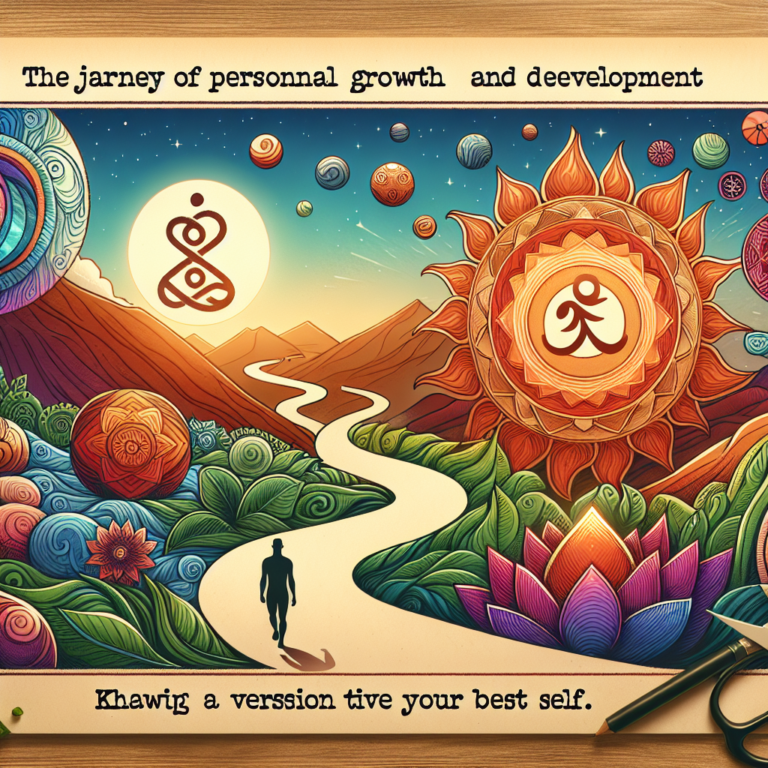Introduction to Karma
Karma is a concept that stems from ancient Indian philosophies, primarily associated with Hinduism, Buddhism, and Jainism. It refers to the universal law of cause and effect, where every action has corresponding consequences. This principle not only impacts one’s spiritual journey but also significantly influences both mental and physical well-being.
The Origins of Karma
The word “karma” is derived from the Sanskrit term “karman,” which means “action” or “deed.” Historically, it has been referred to in various texts, including the Vedas, Upanishads, and the Bhagavad Gita. In these philosophical teachings, the concept of karma is portrayed as a guiding principle that dictates how individuals experience life based on their actions.
Types of Karma
Karma can be categorized into several types, each with its nuanced implications on individual experiences:
- Sanchita Karma: This refers to the accumulated karma from past actions. It encompasses all the deeds performed in past lives that have yet to bear fruit.
- Prarabdha Karma: This is the portion of karma that is ripe for experience in the current lifetime. It determines the circumstances and conditions one encounters.
- Aagami Karma: These are the future actions that will lead to future reactions. It is the karma earned in the present moment that will unfold in due course.
Karma and Mental Well-being
The relationship between karma and mental well-being is profound. Understanding karma can help individuals develop a more conscious approach to their actions, leading to improved mental health.
Mindfulness and Awareness
One of the most significant impacts of understanding karma is the promotion of mindfulness. By being aware of one’s actions and their potential consequences, individuals can cultivate a greater sense of presence and intention in their lives. This mindfulness can reduce anxiety and depression, leading to an overall positive mental state.
Accountability and Personal Growth
Karma encourages individuals to take responsibility for their actions. This accountability can foster personal growth and empowerment. When people recognize that they are responsible for their outcomes, they are more likely to engage in positive behaviors, thereby enhancing their mental health.
Building Positive Relationships
Consistent positive actions, as dictated by the principles of karma, can lead to healthier relationships. Generosity, kindness, and compassion contribute to a supportive social environment, which is crucial for mental wellbeing. Strong connections with others can reduce feelings of isolation and loneliness.
Reducing Resentment and Anger
Understanding karma can also aid in letting go of anger and resentment. Realizing that negative actions can have lasting consequences encourages forgiveness and the release of grudges, which can significantly improve mental clarity and peace of mind.
Karma and Physical Well-being
Like mental health, one’s understanding and application of karma can also extend to physical well-being. The effects of one’s actions can manifest in lifestyle choices, health behaviors, and overall vitality.
Healthy Lifestyle Choices
Individuals who grasp the concept of karma may be more inclined to engage in healthy habits. Recognizing that positive actions, such as exercise and nutritious eating, lead to favorable health outcomes can motivate individuals to prioritize their physical well-being.
Stress Reduction
The awareness that one’s current physical state is a culmination of past actions can help alleviate stress. By focusing on positive behaviors and the intention behind actions, individuals can mitigate the stress associated with blame and regret.
Creating Harmony through Positive Action
The law of karma suggests that positive actions contribute to a harmonious existence. When individuals act kindly, they not only improve their mental state, but they can also contribute to a positive physical environment that promotes health and happiness.
The Mind-Body Connection
Overall, the understanding of karma emphasizes the profound interconnection between mind and body. Negative mental states can lead to physical health problems, and vice versa. By recognizing this, individuals can undertake a holistic approach to their well-being that addresses both aspects concurrently.
Application of Karma in Daily Life
Understanding karma is not merely an intellectual exercise; it requires the application of that concept in daily life. Here are practical ways to incorporate the principles of karma for enhanced mental and physical well-being:
Practice Daily Mindfulness
Set aside time each day to engage in mindfulness activities, such as meditation or yoga. These practices enhance awareness and help individuals make conscious choices that align with positive karma.
Engage in Kind Deeds
Incorporate acts of kindness into the daily routine. Whether it’s complimenting a stranger or volunteering, positive actions can lead to a more fulfilling life and foster a positive community.
Reflect on Past Actions
Regularly take time to reflect on past actions and their consequences. Acknowledging mistakes and learning from them can aid in personal growth and prevent negative patterns in the future.
Effective Communication
Engage in open and honest communication with others. This promotes understanding and can resolve conflicts that otherwise contribute to negative karma.
Forgive and Let Go
Make a conscious effort to forgive those who have wronged you, as well as yourself. Letting go of grudges can free up mental space for positive thoughts and actions.
Conclusion
In conclusion, understanding karma is a powerful lens through which individuals can navigate their mental and physical well-being. The intricate connection between actions and outcomes fosters a sense of awareness and accountability that can lead to personal growth. Embracing the principles of karma can transform not only individual lives but also the dynamics of communities, ultimately creating a more compassionate and harmonious world.
FAQs
What is karma?
Karma is the philosophical concept that emphasizes the law of cause and effect, where every action leads to corresponding consequences, influencing an individual’s future experiences.
How can understanding karma improve mental health?
Understanding karma promotes mindfulness, accountability, and healthy relationships, all of which contribute to a more positive mental state and emotional resilience.
Does karma affect physical health?
Yes, the principles of karma can influence lifestyles and health behaviors, leading to better physical well-being through positive actions and stress reduction.
Can karma be changed?
Individuals can change their karma through conscious actions. By engaging in positive behaviors and learning from past mistakes, individuals can shape their future experiences.
Is karma a religious concept?
Karma has its roots in various religious traditions, including Hinduism and Buddhism, but it can also be understood in a secular context as a principle of personal responsibility and ethics.
It seems like your message was cut off. Could you please provide more context or specify what you would like to discuss or ask about?, #Understanding #Karma #Impact #Mental #Physical #Wellbeing, #Understanding #Karma #Impact #Mental #Physical #Wellbeing, 1734308463, understanding-karma-its-impact-on-mental-and-physical-well-being





